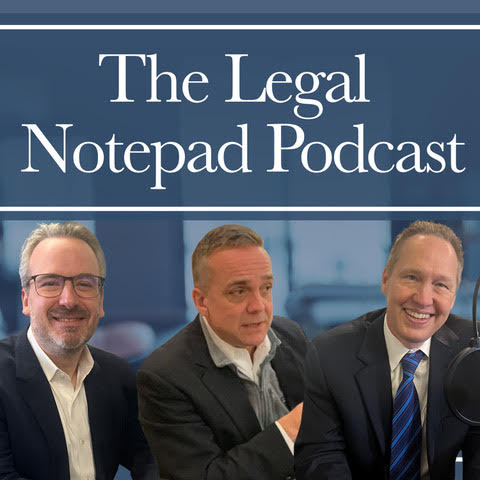How do Facebook Memorialized Accounts and Legacy Contacts have an impact in wrongful death claims? The answer should have you (anyone over 18 years old) thinking about your Facebook Legacy options, regardless of health.
At DeCamillis & Mattingly, we have substantial experience in handling wrongful death cases, so we come face to face with the topic on a regular basis. When a client comes to us believing that a person or company is responsible for the death of a family member, we act quickly to learn as much as possible about all relationships and activities of the deceased. With internet users now more than half the human population, and Facebook becoming a virtual life record of the Millennial generation, Facebook is one of the first sources we tap for comprehensive social context of a person who has lost their life.
Facebook complicated this process when it created the ability to “Memorialize” accounts of deceased persons, which (among other features) locks down the account and prevents any administrative access. However, Facebook also provides the opportunity for users (while still living) to assign a “Legacy Contact” who would have special access privileges to a Memorialized Account. On the surface, these functions are respectful and of value to a grieving family. For example, a Memorialized account prohibits friends from posting to the page if they were unaware of the death, and it eliminates awkward automated posts from the deceased, such as birthday notices.
These lock-down functions of Memorialized Facebook accounts can therefore prevent repetitive pain and suffering for the family, but as currently administered, they can create new frustrations if not managed respectfully. In Facebook’s current application of memorializing an account, the process for a request is broadly open and accessible. Any “friend” (Facebook friend) of the deceased can request Facebook to memorialize an account. If Facebook verifies the death, the account is labeled “Remembering …[name]”, and is locked down as it is, prohibiting access to anyone (relation or not). This is problematic for wrongful death claims. The identity of the requestor is unknown, even to immediate family.
We at DeCamillis & Mattingly recently encountered this very situation. We immediately found that the FaceBook account of the deceased was memorialized (unbeknownst to the parents), which meant we were unable to access critical information, such as the list of FaceBook friends as well as recent photos and private messages.
If the deceased had assigned a Legacy Contact, the problem would have been avoided. Without a Legacy Contact, Facebook states that a court order or proof of relation is necessary to access the account. Facebook provides no specific form, page, or contact information for court orders or proof of relation. Rather, these requests are made through Facebook’s general “Help.” Searching the topic in Facebook resulted in a “didn’t find results” message, therefore submitting an email to their general help desk was our next attempt, which resulted in no response.
Facebook does state that the memorialization processes and rules are constantly undergoing change, as this is a topic with many sides of sensitivity and privacy. Recognizing these impacts are relatively new, the following may be helpful for any adult Facebook users:
- Appoint a Facebook Legacy Contact.
In cases of natural death as well as wrongful death, it is increasingly valuable to have a Legacy Contact appointed while we are healthy and active, and certainly if we have chronic illness and are preparing for death. Considering the value today of images and correspondences in social media, not to mention lists of friends, appointing a Legacy is increasingly similar to leaving someone directions or a key to a lock box containing valuable personal information and possessions. In cases of wrongful death, which by nature are unpredictable, it is even more critically important for a trusted loved one to have access to a Facebook account for pursuit of answers, peace, and justice. - Facebook Legacy Contacts still don’t have total access, so provide necessary access as well.
Facebook Legacies don’t currently have total access to memorialized accounts, such as access to private messages which are critical in wrongful death cases. When requesting that anyone be your Legacy Contact, therefore, safely and securely provide them your login and password as well. - Don’t memorialize an account without consulting the closest living relatives of the deceased.
Not only does it increase pain and suffering to the deceased’s survivors, but it may cause suspicion and at least resentment toward any friend who Memorializes an account without consulting the closest living relative of the deceased. And don’t memorialize an account at all if there is any doubt or question at all that the death was natural. In the event of an untimely death, it is in the best interest of the deceased that a loved one has total access to their private correspondence.
Helpful Additional Links on FaceBook Memorializing and Legacy Contacts:
- Facebook Memorializing and Legacy Appointments
- What is a Legacy Contact?
- Can I choose someone who isn’t my Facebook friend as my legacy contact?
- What should I do if someone chose me as their legacy contact on Facebook but I don’t want to be?
- What data can a legacy contact download from Facebook?
- My friend’s Facebook profile is already memorialized. Can I add a legacy contact to it?
- How do I add, change or remove my legacy contact on Facebook?
We hope this blog can be of value or interest to our website visitors and social media followers. Particularly with the ever-changing ramifications of social media impact within our practices of law, we will continue to blog on these and other topics related to our experience. Please feel free to contact us with any suggestions for future topics, and thank you very much for reading.


